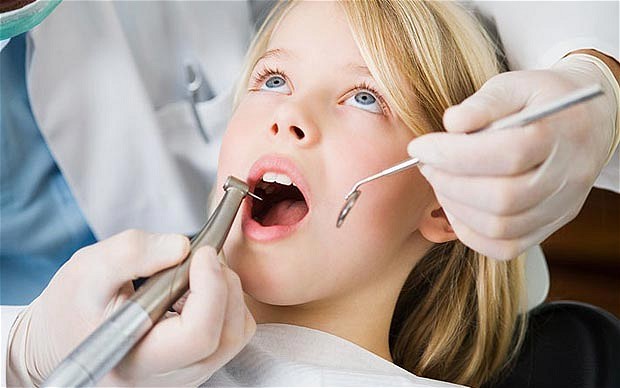Dentists are medical doctors who focus on the diagnoses, treatment, and maintenance of the oral cavity. Caring for the teeth and the oral cavity can prevent many diseases from spreading, and two yearly visits to the dentist are recommended for complete, all-around health care. Although there are many doctors within the field of dentistry, most patients will see a general practitioner who can perform a number of maintenance techniques to keep their patients’ oral cavity healthy.
Health care providers recommend two yearly visits to a dentist; this is similar to a yearly check up with a general practitioner. Although there are many specialties within the field of dentistry, there are dentists who will focus specifically on these twice-yearly check ups. Also known as a Doctor of Dental Surgery (DDS), these dentists have obtained a Bachelor’s degree and completed a four-year course of study at an accredited Dental school to obtain a license to practice general dentistry.
A general dentist is mainly focused on maintenance and prevention of disease in the oral cavity. However, they are also qualified to perform a number of tasks including, tooth repair, extracting teeth, and filling cavities. Additionally, another large portion of their job involves educating their patients on proper oral care in between visits. Every six months, they will thoroughly clean their patient’s teeth to prevent tooth decay and gum disease.
Although most patients follow their own daily regimen to keep their teeth clean, the doctor has specialized tools that can remove tartar build-up, which cause tooth decay. During these visits, they may also check for early signs of disease or abnormal tooth structure by taking x-rays. Often times, they will make a diagnoses based on their observations as well as the patient’s issues, and then refer the patient to a specialist if needed.
General dentists are qualified to work on most adult patients who simply need to maintain a healthy oral cavity. However, pediatric and geriatric dentists have extra training to specialize in treating children and the elderly, respectively. Pediatric dentistry is one of the several recognized dental specialties. These practitioners have received an additional two to three years of training beyond dental school to treat common childhood oral diseases and make early orthodontic assessments.
Geriatric dentistry is also a recognized specialty. These specialists focus specifically on the dental needs of elderly patients, who are susceptible to tooth decay and deterioration of the gums and jaw; all of these are age-related issues that a geriatric dentist is trained to diagnose and treat with additional education beyond dental school. Both specialties also carry out general care and maintenance for their patients; however, they have a different level of technique to provide appropriate care for their patients.
Proper dental care is an important aspect of good overall health care. Two yearly visits with a general practitioner can treat and diagnose a number of oral cavity diseases, which can cause serious health issues if left untreated.






